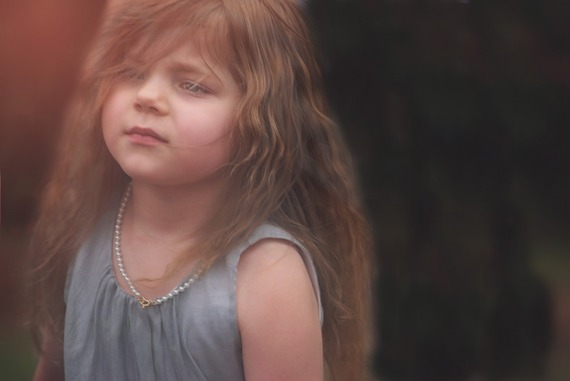In the midst of chaos and grief, divorcing couples often discount the impact their divorce has on their youngest children. In my therapy practice, parents will often send their older children to therapy, but will report that their little ones are "doing just fine." My heart goes out to those little people who do not have the words or vocabulary to express how those changes are affecting them. Those little minds who may be handling the divorce well because no one explained it to them in a language they understood.
When going through a divorce with your toddler there are simple and easy steps to prepare your child for change. Here are 5 important areas to cover:
1. Explain the new living situation in simplistic, concrete terms.
Parents can get so consumed with delivering the news of their divorce, they forget to give their little ones a clear picture of how the situation will affect them. Toddlers are very concrete, literal creatures. They need to know exactly what the "divorce" means for them. If you aren't sure exactly what changes will be happening -- just tell them what you do know. You might say something like, "I am going to live at the house and Daddy will have his own house. You will live at both places. You will have clothes and toys at this house and you will have clothes and toys at Daddy's house." The more details you can give -- the more prepared your toddler will be. Be sure to mention the situation is permanent. Many toddlers I have worked with described the divorce as "fun" because they are staying at a hotel or at a relative's home. Help your child understand the permanence of the situation. Avoid sugar coating the situation with comments like, "not much will change" -- as this won't prepare your children for the reality of what is to come.
2. Use language that prepares them for the long-term.
Sometimes a parent's grief can cause them to use soft words that do not give their child the full picture of what may be happening. Language like, "we will still be a family" and "we still love each other" may confuse a younger child who needs concrete, black and white explanations. When talking to younger children it is better to use simplistic language with a clear message. Even if you still love each other -- telling a young child this can add to their confusion and give them false hope.
3. Let your child know you will never leave or "divorce" them.
Young children have no concept of divorce. The idea of someone in the family moving out is unimaginable to them. Let your child know that sometimes mommies and daddies decide to break up -- just like some kids decide not to be best friends anymore. Tell them that parents do not divorce or leave their children and that you will never leave them.
4. Allow your child's clothes, toys and comfort objects to go back and forth.
I have seen many parents get very petty when going through a divorce. Tensions are high and relationships are often strained. Do not let this strain interfere with what is right for your child. Your child needs comfort and routine through a divorce. With all the upheaval and change -- toddlers need their clothes, toys and comfort objects to be the same in both homes. Down the road it is nice to get two sets of clothes and toys, but in the beginning -- keep the change to a minimum.
5. Tell your child every day where they will be staying and with whom.
The biggest complaint I hear about from young children is the schedule. Little kids will tell me that they are confused about whose house they are going to each day. They don't know who is picking them up from pre-school or daycare. Tell your child every single day what their schedule will be. Tell them in the morning and tell them before they go to bed. Make a calendar and hang it in their room. Make a red circle on the days they are with their mom and a blue circle on the days they are with their dad. This will help give your child a visual reminder of what their schedule is for the week.
Divorce is a difficult and traumatic process for the entire family. Toddlers will not often exhibit signs that they are going through a difficult time. I tell parents not to wait until their toddler is showing distress to address the divorce with them. Be proactive. Address the issues above. Stay clear and simplistic in your explanations. If your child understands how these changes will affect them -- they will are much more likely to adapt sooner.
Natasha Daniels is the author of How to Parent Your Anxious Toddler. For more of her parenting articles visit AnxiousToddlers.com or follow Natasha Daniels on Pinterest, Facebook, Twitter and Instagram.
